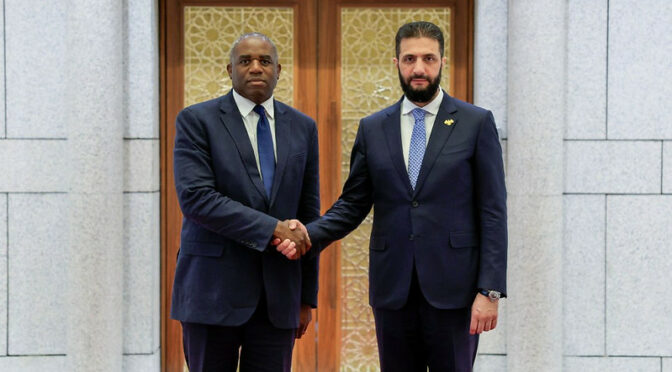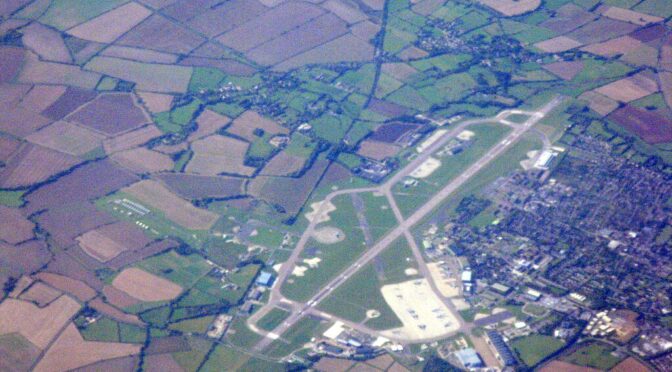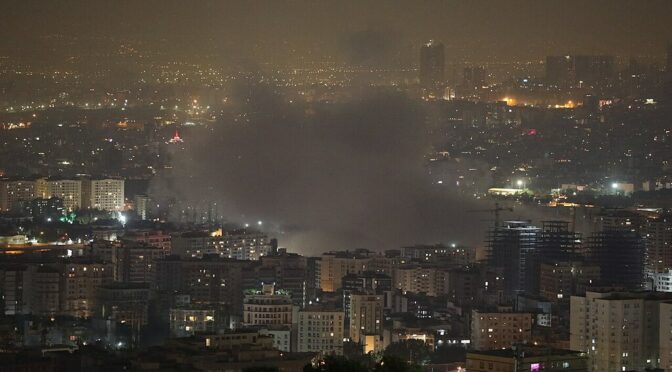Article published in The Daily Telegraph, 4 July 2025. © Richard Kemp
Visiting Israel during the recent Iranian attacks, several times I saw Israeli interceptors hurtling single-mindedly through the night sky over Tel Aviv towards an unseen Iranian ballistic missile. I’d been in active warzones before, but even so, in my experience it is a uniquely reassuring sight.
The IDF Air Defence Command shot down around 86 per cent of some 500 missiles Iran fired during the twelve day war, and stopped 99 per cent of over 1,000 drones. If drones are the future of warfare, they were a busted flush in this conflict, when faced with the most sophisticated air defence system in the world. That system is made up of a wide range of expensive and precisely directed and coordinated interceptors including Arrow, David’s Sling, Barak and Iron Dome, supplemented by US Thaad launchers and SM interceptors fired by US warships near Israel.
Ever since Saddam Hussein fired 42 Scud missiles at Israel during the 1991 Gulf War, Jerusalem has been working assiduously to defend its people against all forms of air attack. Thirty four years of research and development and tactical and technical innovation accompanied by heavy financial investment has more than paid off in the face of missile and drone attacks from Iran, Gaza, Lebanon, Syria, Yemen and Iraq. Israel’s strategy is not just to meet threats from the air but to overmatch them, and the IDF continues to work flat out to maintain its qualitative edge as its enemies learn from their own failures.
Now I’m back home in Britain, and to be honest I don’t feel nearly as safe as I did in Israel under active attack. The UK has made almost no effort in this sphere and today we are undefended against all but the most limited forms of attack. What defences we do have are too few to cover much of our territory.
Our only protection against ballistic missiles is the Royal Navy’s six Type 45 destroyers, armed with Sea Viper anti-air missiles – just two of these ships are typically available for duty. Even their capabilities are limited compared to the Israeli equivalent: HMS Diamond did shoot down an Iranian ballistic missile fired by the Houthis last year, but Sea Viper is not meant to be capable of ballistic intercept and the enemy weapon was probably quite basic: of the type often dubbed ‘quasi ballistic’. If one of our aircraft carriers sails across the world, as is the case today, she takes a destroyer with her and we are down to one to protect the UK.
Aside from our one available destroyer, a few RAF quick response fighters can be launched to intercept enemy planes, cruise missiles and drones. The Army has a few batteries of short-range air defence missiles. We do not have any up and running airborne radar systems, meaning that we have very limited ability to detect low-flying incoming threats. Our combined defences don’t come anywhere close to meeting the threat we face today.
The UK homeland can easily be struck by a range of Russian missiles – ballistic, cruise, hypersonics and drones – fired from Russia itself or from its aircraft, ships or submarines. There is a man in the Kremlin who has proved his willingness to use the weapons against military targets as well as population centres, and has already ordered lethal attacks of a different type against civilians in our country.
I wonder if Keir Starmer realised that, and our inability to effectively defend against such strikes, when he led with his chin on heading a “coalition of the willing” against Russia. Perhaps he has realised now and maybe that explains why he’s gone so quiet. But it only gets worse. Within 15 years ballistic missiles fired from anywhere in the world will likely be able to hit targets anywhere else in the world: such systems have already been tested. Unless our capabilities improve dramatically, we will be comprehensively deterred from any unilateral action, no matter how vital it may be.
The Israelis also understand something else we seem to have forgotten: attack is the best form of defence. During the twelve day war they didn’t just rely on their interceptors but, using combat planes, ships and drones, they relentlessly struck at Iran’s launchers, knocking out at least half of them – as well as missile and drone stocks and production facilities. Meanwhile our Attorney General, Lord Hermer, reportedly advised Starmer that Britain’s participation in these operations would be illegal. Churchill received no such advice when he launched a 600 bomber raid against the German V-weapon missile development site at Peenemunde in 1943 and then, Israel-style, proceeded to pummel warehouses, storage facilities, rail tracks and launch sites connected with the V-weapons.
As well as re-discovering the political spine necessary to defend ourselves, we need to rapidly build up our missile defences. That’s not going to be achieved by decades of the glacial procurement processes for which the Ministry of Defence is infamous. It would be a good idea to follow the German example of buying Arrow off the shelf from Israel. But wait, the Government has an arms embargo against the Israelis.
Perhaps, however, we should not be listening to the pro-Hamas hordes on our streets (just four per cent of Brits supported Hamas in a YouGov poll in March, while over half said they had at least some sympathy for Israel). We might rather consider our own national security interests instead of performatively attacking an ally in need – an ally that can also help us.
It’s past time for joined up strategic thinking plus some Churchillian “action this day”.







